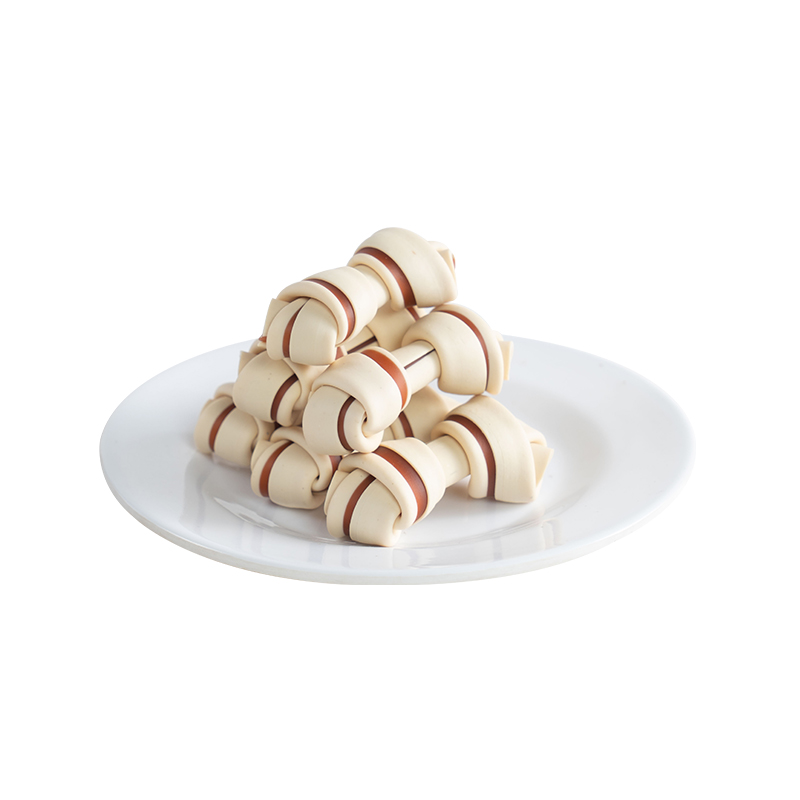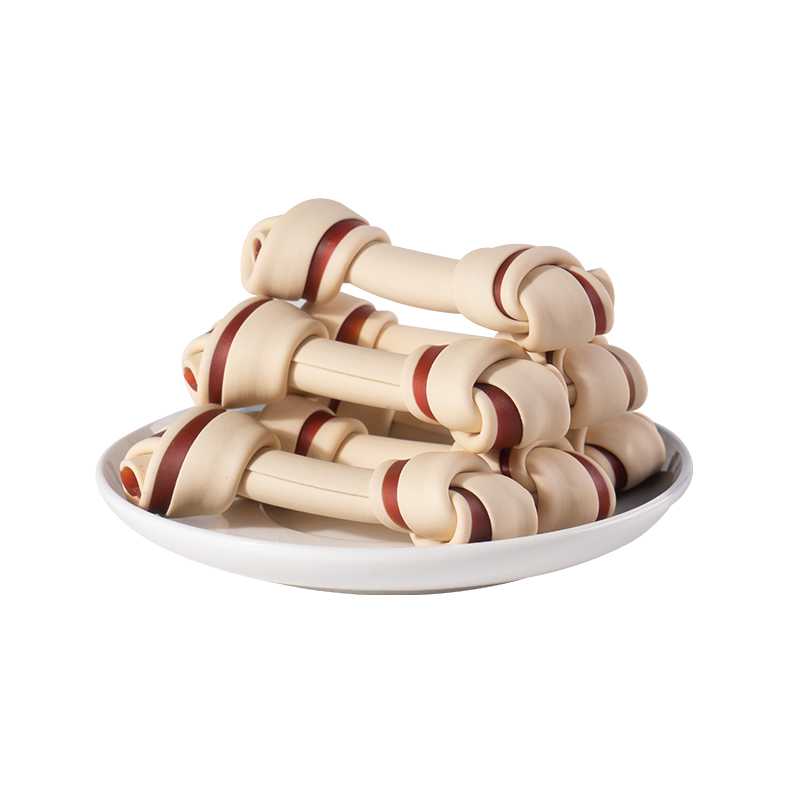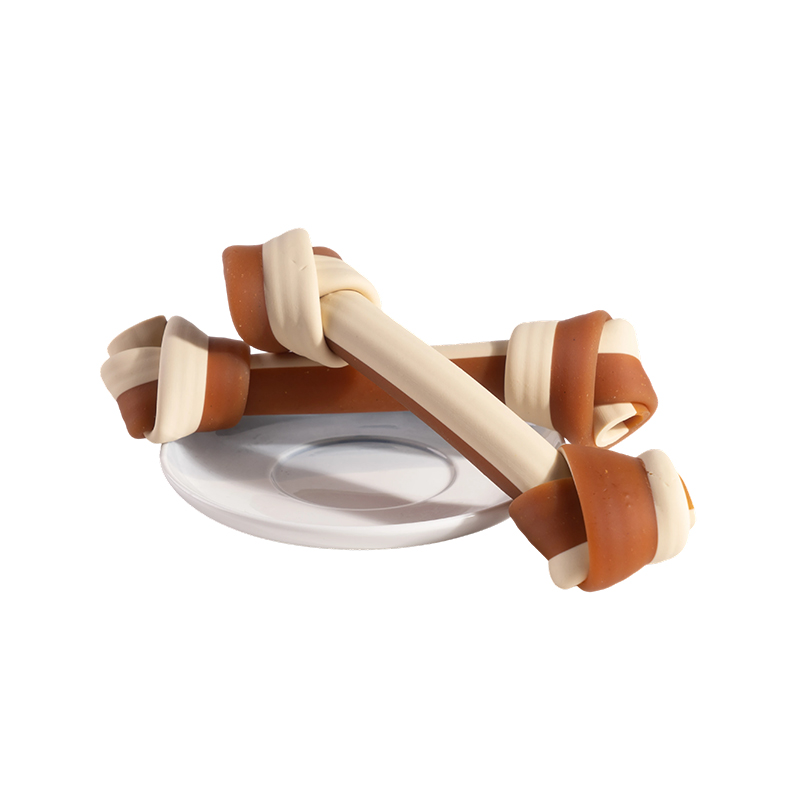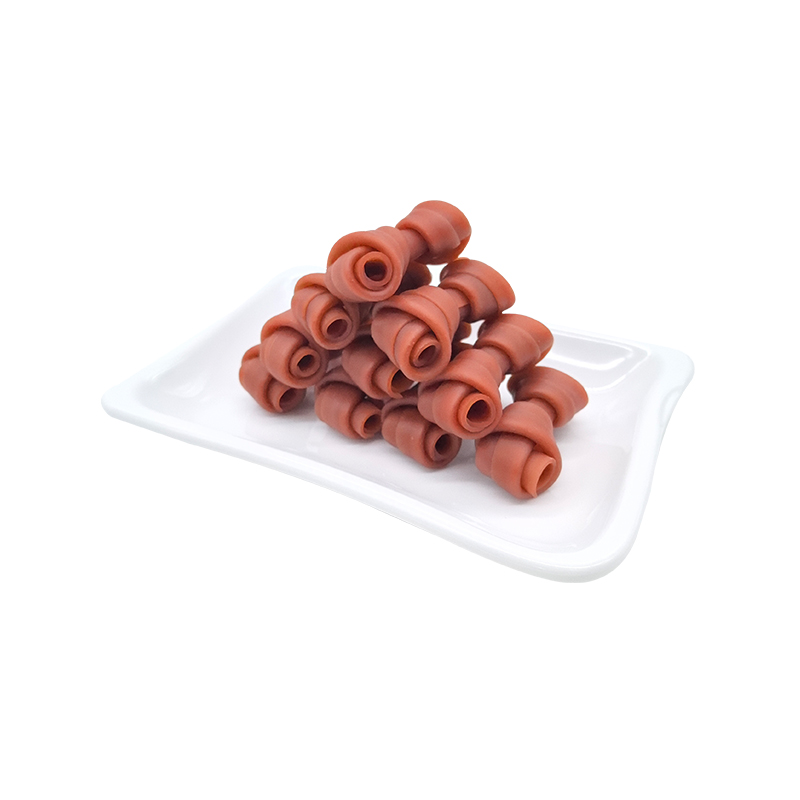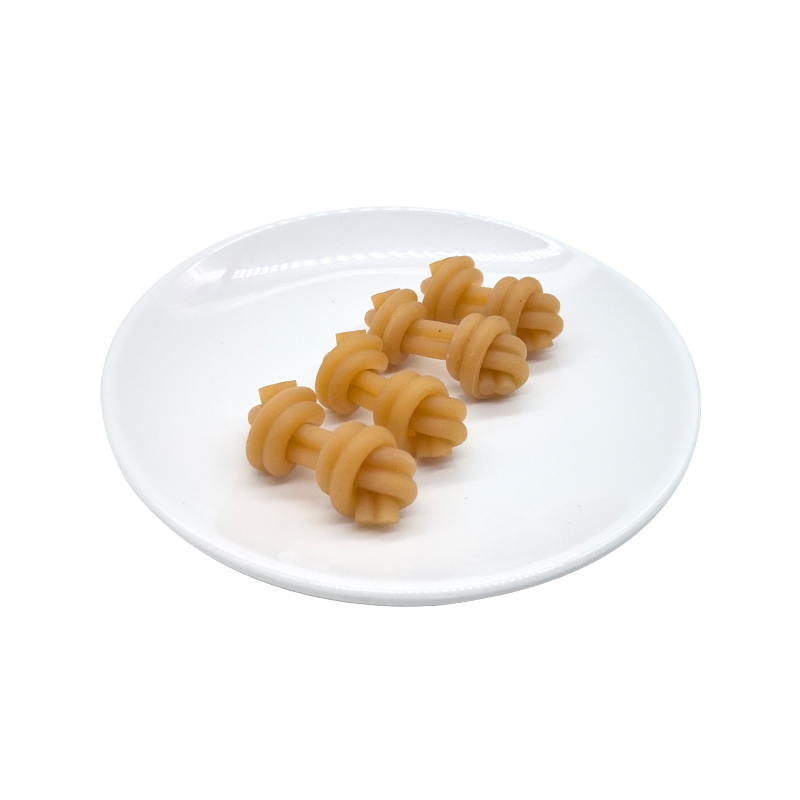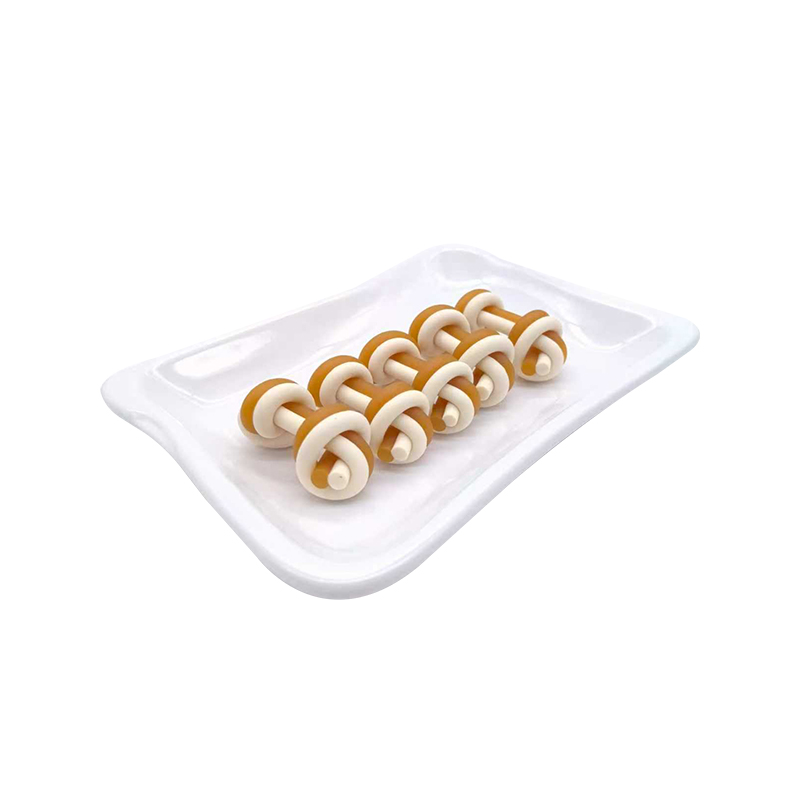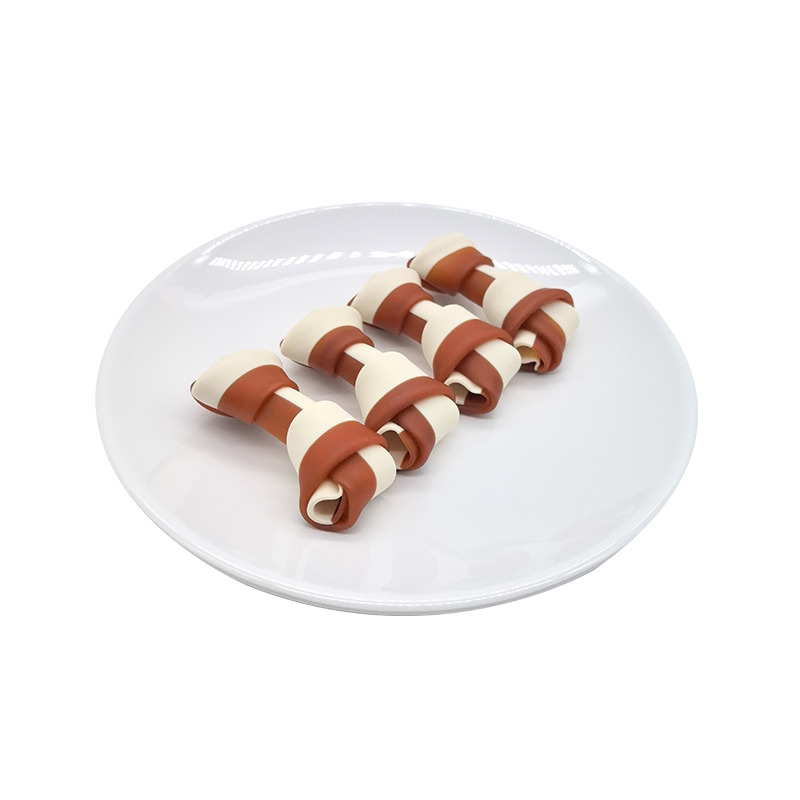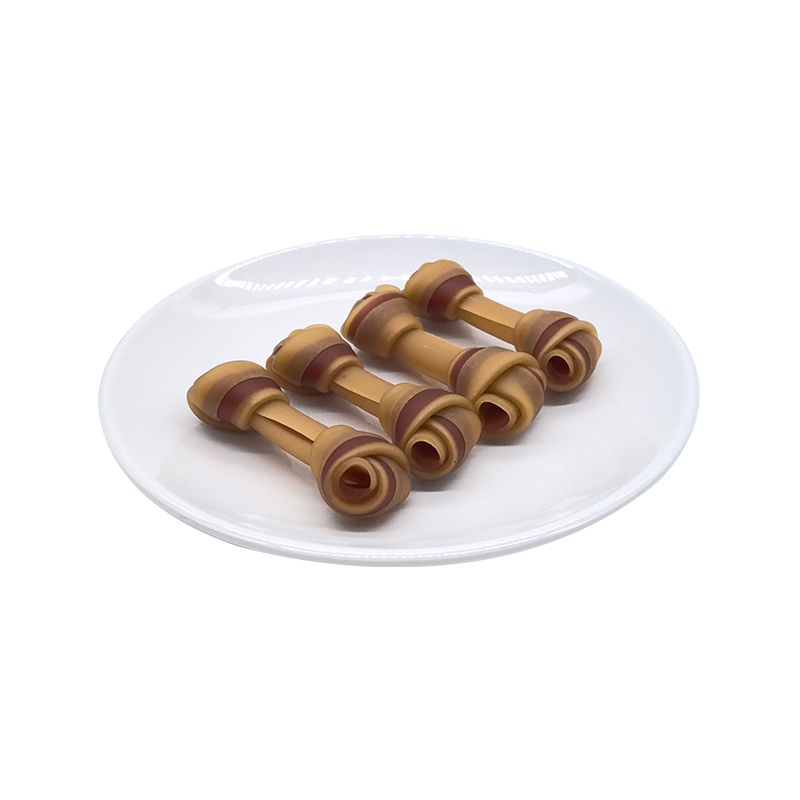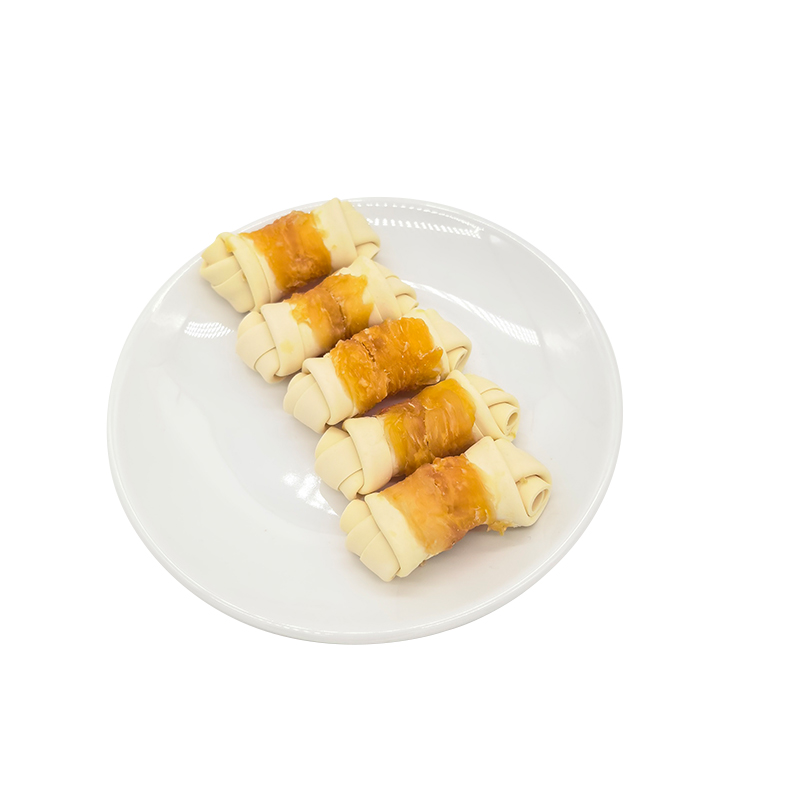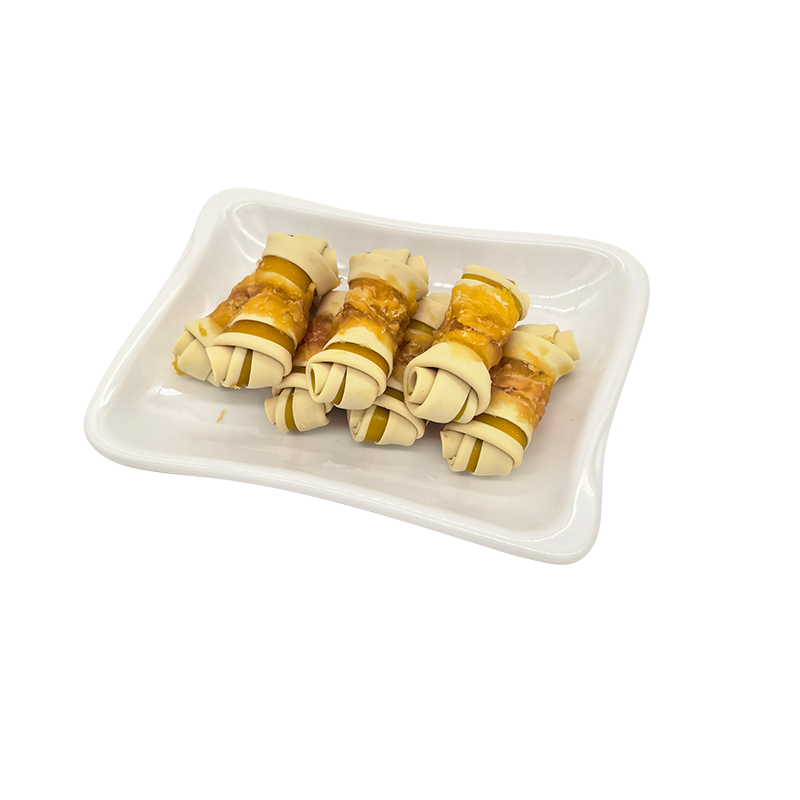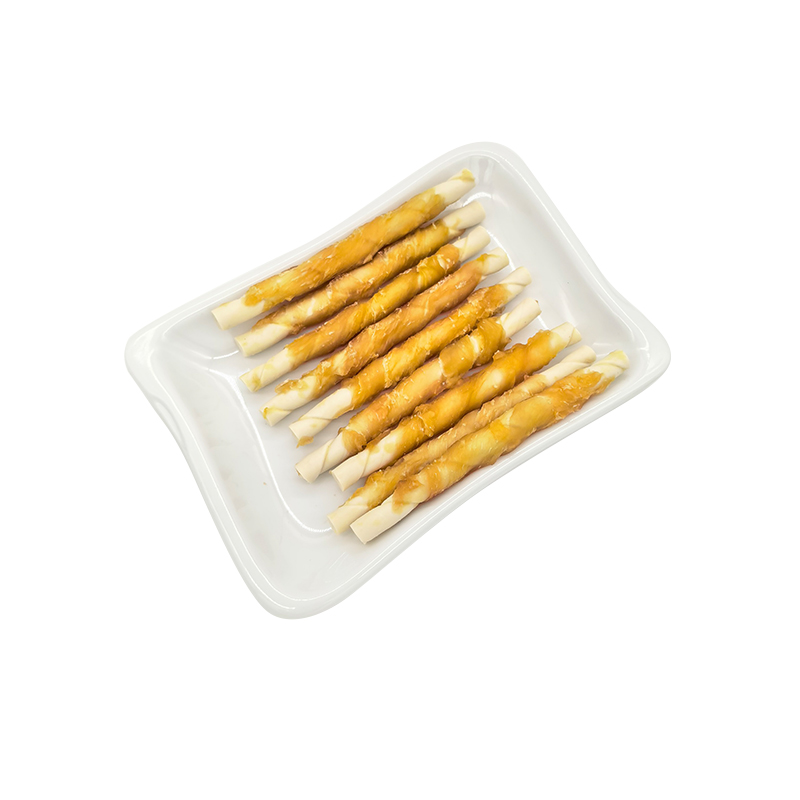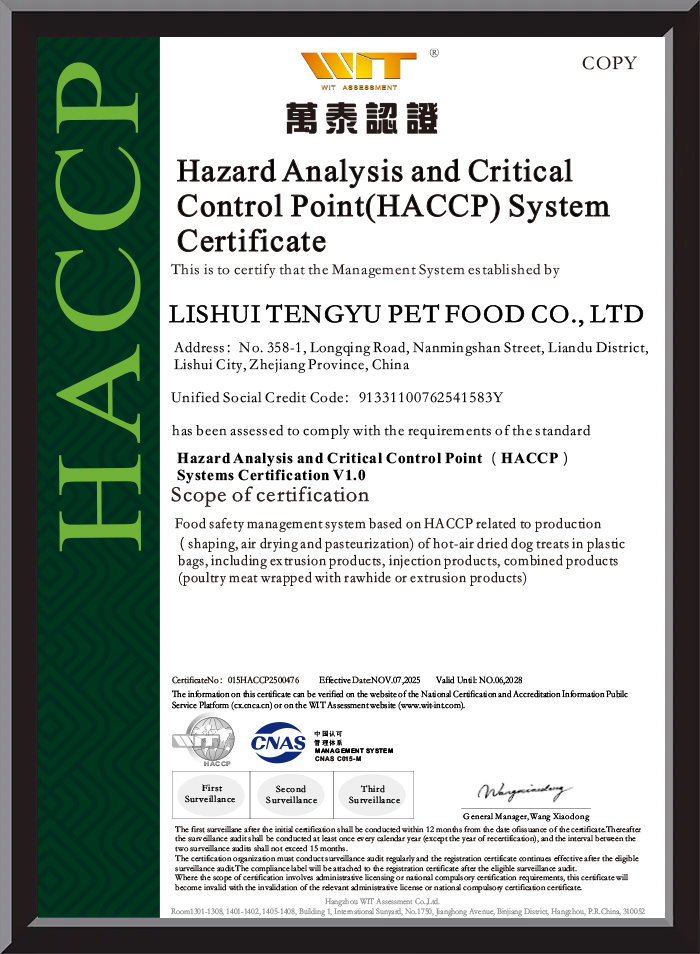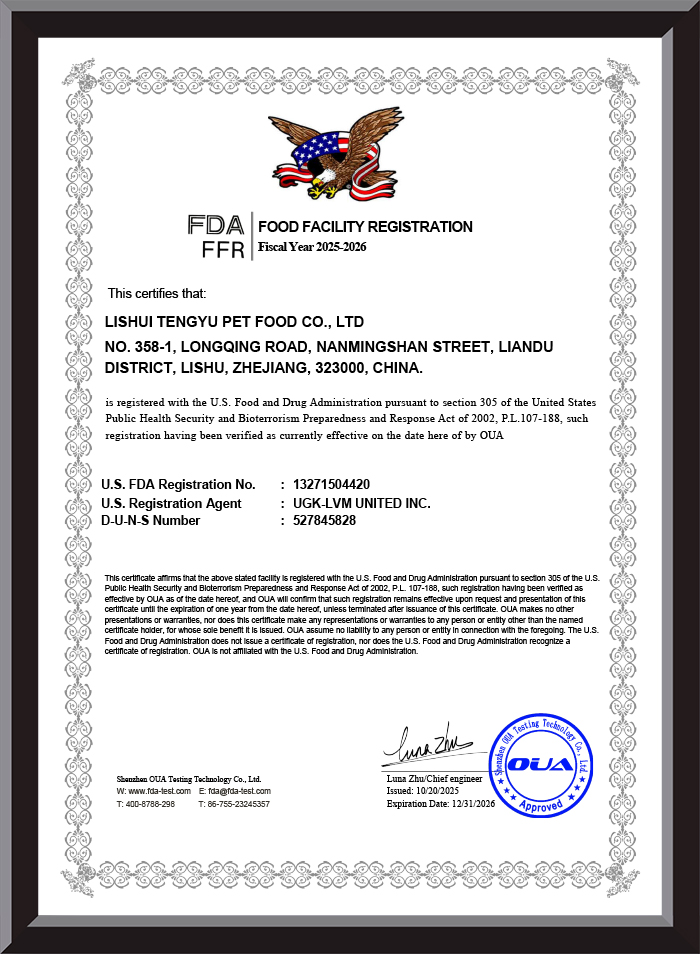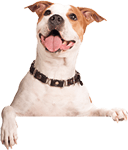Introducing puppy jerky treats into a young dog's routine is about more than just handing out a snack; it involves thoughtful integration into their o...
Read MoreWelcome to Lishui Tengyu Tierfutter GmbH.
[email protected]

-
-
Puppy Jerky Treats have become increasingly popular not only for their taste but also for their ingredient transparency. Ingredient transparency is a ...
Read More -
Puppy Jerky Treats have become a common snack choice among dog owners, offering both flavor and convenience. While these treats are appealing to puppi...
Read More -
Puppy Jerky Treats are a popular choice among dog owners who want to reward their pets while ensuring a balanced diet. These treats offer a combinatio...
Read More
Knotted bones are one of the more popular chew options for dogs, offering both entertainment and functional benefits. Designed to promote dental health and satisfy natural chewing instincts, Knotted Dog Chews and Dog Knot Bones have become staples in dog care routines.
What Are Knotted Dog Chews?
Knotted dog chews are specially crafted bones, often made from natural or durable materials, with a distinctive knot design. The knot provides a textured surface that encourages chewing, helping dogs exercise their jaws while cleaning teeth.
Key Features:
- Durable design: Resists quick wear and tear
- Textured surface: Supports dental cleaning and gum stimulation
- Variety of sizes: Suitable for small, medium, and large breeds
- Safe ingredients: Many options are made from natural or minimally processed materials
The knot design makes these chews more engaging, keeping dogs interested longer than standard bones.
Benefits of Dog Knot Bones
Dog Knot Bones provide several benefits beyond simple entertainment. Regular chewing can support overall health and well-being:
- Dental Health: The knot’s texture helps remove plaque and tartar naturally.
- Jaw Exercise: Chewing strengthens jaw muscles.
- Stress Relief: Dogs often chew to release stress or anxiety.
- Long-lasting Engagement: The unique shape encourages longer chewing sessions, reducing boredom.
- Digestive Support: Natural or minimally processed knotted bones are easier for dogs to digest.
Types of Knotted Dog Chews
There are various types of knotted chews available, depending on materials and purposes:
| Type | Material | Good For | Features |
| Rawhide Knotted Bones | Natural rawhide | Moderate chewers | Soft-to-medium texture, easy to digest |
| Nylon Knotted Chews | Durable nylon | Aggressive chewers | Long-lasting, keeps dogs busy for hours |
| Edible Knotted Bones | Natural ingredients | Training treats | Digestible, flavored options for variety |
| Organic Knotted Chews | Organic meat or vegetables | Sensitive dogs | Minimally processed, natural nutrients |
Choosing the right type depends on your dog’s size, chewing strength, and dietary preferences.
How Knotted Dog Chews Support Dental Health
Dental care is a major concern for dog owners. Knotted chews naturally aid oral hygiene by:
- Scraping plaque and tartar: The knotted texture helps clean teeth as dogs chew.
- Stimulating gums: Chewing encourages blood flow and gum strength.
- Freshening breath: Some chews are infused with natural flavors that help maintain fresh breath.
Consistent use of Dog Knot Bones can complement brushing routines, helping maintain healthy teeth and gums.
Choosing the Right Knotted Bone for Your Dog
When selecting Knotted Dog Chews, consider the following factors:
Size
- Small dogs: Small knotted bones to prevent choking
- Medium dogs: Medium-sized chews for balanced chewing
- Large dogs: Large, durable bones to withstand strong jaws
Material
- Rawhide: Easy to digest, gentle on teeth
- Nylon: Durable for aggressive chewers
- Organic or edible: good for sensitive or dietary-conscious dogs
Chewing Style
- Gentle chewers: Softer knotted bones
- Aggressive chewers: Harder or nylon-based chews
Health Considerations
- Check ingredients for allergies
- Avoid artificial additives when possible
Monitor chewing sessions to prevent overconsumption
Nutritional and Safety Information
Some knotted bones are edible and contribute to a dog’s diet. Key nutritional considerations include:
| Nutrient | Typical Range in Edible Knotted Bones | Benefit |
| Protein | 20–35% | Supports muscle health |
| Fat | 3–10% | Provides energy |
| Fiber | 2–5% | Supports digestion |
| Minerals | Calcium, phosphorus | Supports strong teeth and bones |
Safety Tips:
- Supervise chewing, especially for one-time users
- Choose appropriate size to avoid choking
- Store in a dry, cool place to maintain freshness
How to Introduce Knotted Dog Chews
Introducing Dog Knot Bones should be gradual:
- Offer the chew for a short session initially
- Observe how the dog handles the texture
- Remove if pieces break off easily
- Gradually increase chewing time as the dog adapts
This approach ensures safety and promotes a positive chewing habit.
Training and Reward Benefits
Knotted bones are also effective as training tools and rewards. Their texture and flavor motivate dogs to focus during training sessions, making them good alternatives to small treats. Using chews strategically can:
- Reinforce positive behavior
- Encourage calm chewing and patience
- Serve as a distraction during stressful situations
Common Questions About Knotted Dog Chews
Q1: Are knotted bones safe for puppies?
A: Yes, if you choose small, soft options appropriate for developing teeth. Supervision is recommended.
Q2: Can aggressive chewers use rawhide knotted bones?
A: Aggressive chewers may need durable nylon or specially reinforced chews to prevent breakage.
Q3: How often should dogs have knotted bones?
A: Daily or several times a week, depending on the dog’s chewing habits and size. Monitor overall calorie intake if the chew is edible.



 English
English Español
Español Deutsch
Deutsch
